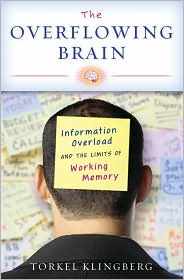
That, as they say, is the money shot. Sometime during the night the 100,000th visitor clicked their way to Bookeywookey. Perhaps through a search engine, perhaps just following a series of links, perhaps through a fellow blogger, or perhaps it was a regular reader checking in - I don't know - but I am very glad of the community I have built through blogging - thank you all for stopping by to read about what I read, see in the theatre, have found nifty about the brain, my obsession with creative process, or the weird connections I like to make cross disciplines. I hope as I continue to write that more of you will leave the occasional comment - I've met so many great people blogging and enjoy getting to know my readers a little better. Now, on to the business of the day!
I finished Martin Millar's The Good Fairies of New York. It was humorous and fantastical romp that, in my estimation, went on a few more pages than its little joke could handle. Still, a goodish time, here are my thoughts.
 I am not quite half-way through Iris Murdoch's The Nice and The Good which I am reading for Cornflower Book's Bookclub. It is a hybrid mystery, metaphysical rumination, and soap opera. I am generally a big fan of Murdoch's but I am generally finding this one trudgery, I really feel like I have to pull my Wellington's on to trudge through it. Somehow the components, the usual components in a Murdoch novel, aren't integrated. The usual deep analysis of character's thoughts read like footnotes:
I am not quite half-way through Iris Murdoch's The Nice and The Good which I am reading for Cornflower Book's Bookclub. It is a hybrid mystery, metaphysical rumination, and soap opera. I am generally a big fan of Murdoch's but I am generally finding this one trudgery, I really feel like I have to pull my Wellington's on to trudge through it. Somehow the components, the usual components in a Murdoch novel, aren't integrated. The usual deep analysis of character's thoughts read like footnotes:Her love for men had always been somehow neurotic and unfulfilled, and this had been true even of her love for her husband. She had loved Alistair very much, but in a nervous plucking, lucked at way, and though both her body and her mind had been involved in this love they had never been in accord about it.As the title suggests, the subject of all the rumination is moral behavior in both its internal and external guises:
Ducane could face being thought a brute, but could not face being thought a cold-blooded deceiver. What I can't bear is not being one but seeming one!In this sense, this is really a book for our time. We seem to live in a time of rampant corruption (is it actually any worse, I wonder). I just wish the theme and the plot seemed to be woven of the same cloth. I hope I am able to get through it all by Sunday so that I can participate in the discussion.
 I am also working on The Overflowing Brain, neuroscience researcher Torkel Klingberg's easily written book on how the brain that we ended up with as the genetic legacy of our Stone Age forebears is not wired for today's flood of incoming data. He discusses in (mostly) accessible language the intersection of attention and a type of memory called working-memory, and why and how they become maxed-out.
I am also working on The Overflowing Brain, neuroscience researcher Torkel Klingberg's easily written book on how the brain that we ended up with as the genetic legacy of our Stone Age forebears is not wired for today's flood of incoming data. He discusses in (mostly) accessible language the intersection of attention and a type of memory called working-memory, and why and how they become maxed-out.I also received two advance review copies (ARCs) recently that, though they cover vastly different topics, seem to me to reflect the same urge in book writing. They integrate multiple topics, one often a little arcane but sexy with one that is something of a niche market - very interesting to those who like it and dry to most other readers. Do any of these sound familiar: a history of the world through metal and microbes, a story of Western culture through spices? This is a sort of polymaths paradise. I have to admit that these two new books both hold a certain allure for me. Mr. Langshaw's Square Piano by Madeline Goold claims to tell the story of a cultural revolution caused by bringing pianos into the home. The Alchemy of Paint by Spike Bucklow claims to reveal the secret recipes of the medieval painter's palette while telling a story that partakes of devine myths as well as chemistry. Music and history, art and science - see what I mean? It's a polymathic pandemic. Actually, I don't mind this trend at all - its' right up my street. I think one's passionate interests, no matter how estoric, do become a lens through which we view the world. They can be both more singular and less dry than your average approach to history or science. If the writer successfully shares this abstruse interest with the reader it can become a point of entry to a topic they might have never otherwise gained admission to. I look forward to seeing how both these authors handle task.
















2 comments:
I read The Overflowing Brain a couple of months ago. I read another book on attention earlier this month, Rapt by Winifred Gallagher. If you like Klingberg's book, perhaps you should give Gallagher's a try.
Joseph - Another friend has just read Rapt too and was crazy about it. I will have to search it out. I see you're reading Fadiman - enjoy!
Post a Comment